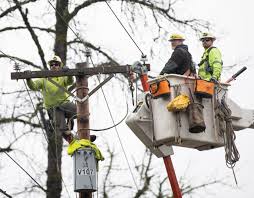
Immigration enforcement operations underway across Middle Tennessee are sending shockwaves through the region’s construction and hospitality sectors, as growing numbers of workers—many of whom have legal work visas—are afraid to show up for jobs. Business leaders warn the ongoing immigration crackdown is not only disrupting individual livelihoods, but threatening the pace of development in one of the fastest-growing areas in the Southeast.
According to NBC-affiliate WSMV, several business owners report a noticeable drop in attendance from immigrant workers, particularly in industries reliant on manual labor. The Tennessee Department of Homeland Security confirmed that over 100 individuals were arrested during a joint operation with Immigration and Customs Enforcement (ICE) and the Tennessee Highway Patrol in the Nashville area. While the full scope of the operation has not been disclosed, authorities have not indicated whether enforcement activities have concluded.

For many workers, the uncertainty has become paralyzing—even for those with legal documentation.
"They're afraid to even come to job sites now," said one Middle Tennessee business owner. "They're afraid of the permit office coming by and checking up and then calling ICE."
The chilling effect on the workforce is being felt most acutely in the construction sector. One woman, who owns a construction business and spoke with WSMV under the condition of anonymity due to fears of retaliation, said that one of her most critical employees was deported to Mexico during the recent ICE operations.
"He's our number-one guy. He's on every job site," she said, emphasizing the immediate operational and emotional toll the deportation has taken on her team and company.
The broader impact is already being measured by national advocacy groups. The American Immigration Council notes that immigrants comprise approximately 17% of Tennessee’s construction workforce—a vital segment that supports the state's rapid infrastructure and residential growth.
“It’s devastating,” the business owner added. “We’re prioritizing the wrong things ... Not to mention that people are afraid to even do a whole lot of construction right now because of all the tariffs and the way that the economy is looking. And you pair that with staff who are afraid to work. It’s not a good outcome.”
While the Biden administration has emphasized targeted immigration enforcement over large-scale raids, the recent arrests in Tennessee have renewed concerns about how immigration policy—federal or state-led—intersects with local economic stability.
The uncertainty has led some employers to delay projects, scale back hiring, or find ways to shield their workforce from further disruption. Yet without clarity on the timeline or scope of ICE’s presence in the region, many businesses say they are simply operating in survival mode.
The construction sector, already grappling with high materials costs, skilled labor shortages, and an unpredictable economic climate, now faces the additional burden of a frightened workforce unsure whether it is safe to work. As operations remain ongoing, advocates and business owners alike are calling for more transparency and reassurances that workers who are here legally will not be caught in the crossfire.
Originally reported by WBIR Staff, WSMV Staff.